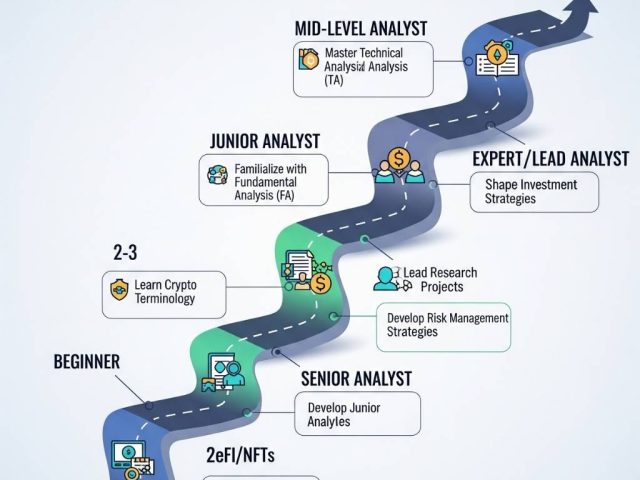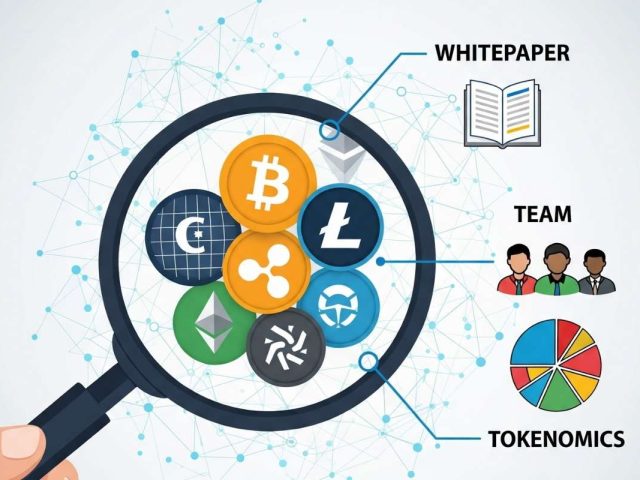The traditional supply chain, a complex web of intermediaries and paperwork, has long been a source of inefficiency and opacity. From the moment a product is sourced to the time it reaches the end consumer, it traverses numerous hands, each adding layers of complexity and uncertainty. But what if there was a way to illuminate this shadowy supply chain, making it transparent, efficient, and secure?
The Murky Waters of Traditional Supply Chains
A Maze of Middlemen
In the traditional supply chain, products often pass through multiple intermediaries before reaching the final consumer. Each intermediary adds its own margin, leading to increased costs for the end consumer. Moreover, the involvement of multiple parties can make it difficult to track the origin and authenticity of products.
Paperwork Paralysis
The traditional supply chain is plagued by mountains of paperwork. Invoices, purchase orders, shipping documents, and customs forms are just a few examples of the paperwork involved. This not only increases costs but also slows down the entire process.
Information Silos and Trust Issues
Different stakeholders in the supply chain often operate in silos, with limited visibility into each other’s operations. This lack of transparency can lead to trust issues, delays, and disputes.
Blockchain: Shining a Light on the Supply Chain
What is Blockchain? A Simple Explanation
Blockchain is a decentralized and immutable digital ledger that records transactions across multiple computers. It is a distributed system, meaning that no single entity controls it. This makes it highly secure and transparent.
Transparency Through Decentralization
Blockchain technology allows for the creation of transparent and immutable records of transactions. Every transaction is recorded on the blockchain, and once a record is added, it cannot be altered or deleted. This ensures that all participants in the supply chain have access to the same information, eliminating the need for trust in intermediaries.
Immutability: Records Set in Stone (or Blocks)
The immutability of blockchain makes it difficult to manipulate data or commit fraud. Each block in the blockchain contains a cryptographic hash of the previous block, creating a chain of blocks that is difficult to tamper with. This ensures that the integrity of the data is maintained.
Boosting Transparency with Blockchain
Tracking Every Step: From Raw Material to Your Shelf
By leveraging blockchain, businesses can track the journey of a product from its origin to the final consumer. Each step in the supply chain, from sourcing raw materials to manufacturing, shipping, and retail, can be recorded on the blockchain. This provides unparalleled transparency and traceability.
Identifying Counterfeits and Eliminating Fraud
Counterfeit goods are a significant problem in many industries, costing businesses billions of dollars each year. Blockchain can help to identify and eliminate counterfeit products by providing a transparent and tamper-proof record of a product’s origin and authenticity.
Building Consumer Trust: Knowing Exactly Where Your Products Come From
Consumers are increasingly concerned about the ethical and sustainable practices of businesses. By using blockchain, businesses can demonstrate their commitment to transparency and sustainability by providing consumers with information about the origin of their products, the working conditions of the workers involved, and the environmental impact of the production process.
Streamlining Efficiency with Blockchain
Automating Processes with Smart Contracts
Smart contracts are self-executing contracts with the terms of the agreement directly written into code. They can automate many of the manual processes involved in the supply chain, such as payments, shipping, and quality control. This can significantly reduce costs and improve efficiency.
Reducing Paperwork and Streamlining Operations
By digitizing and automating processes, blockchain can help to reduce the amount of paperwork involved in the supply chain. This can save time and money, and improve the overall efficiency of operations.
Improved Inventory Management and Reduced Costs
Blockchain can help to improve inventory management by providing real-time visibility into stock levels. This can help to reduce the risk of stockouts and overstock, leading to significant cost savings.
Real-World Examples: How Businesses are Leveraging Blockchain
From Farm to Table: Tracking Food Provenance
Many food companies are using blockchain to track the journey of their products from the farm to the table. This provides consumers with information about the origin of their food, the farming practices used, and any potential food safety issues.
Diamonds Are Forever (and Traceable) on the Blockchain
The diamond industry has been plagued by issues of conflict diamonds and unethical practices. Blockchain can help to address these issues by providing a transparent and traceable record of a diamond’s journey from the mine to the retailer.
The Future of Pharmaceuticals: Secure and Transparent Supply Chains
The pharmaceutical industry is highly regulated, and counterfeit drugs pose a serious threat to public health. Blockchain can help to secure the supply chain and prevent the distribution of counterfeit drugs.
Challenges and Considerations
Scalability Concerns and Network Adoption
One of the primary challenges facing blockchain technology is scalability. As the number of transactions on a blockchain increases, the network can become congested, leading to slower transaction times and higher fees. However, ongoing research and development are addressing these scalability issues, with solutions like sharding and layer-2 scaling solutions emerging.
Regulatory Landscape: Navigating Uncharted Territory
The regulatory landscape for blockchain technology is still evolving. As blockchain technology continues to mature, governments around the world are grappling with how to regulate this emerging technology. It is crucial for businesses to stay informed about the latest regulatory developments and to work with legal experts to ensure compliance.
Integration Costs and Technical Expertise
Implementing blockchain technology can be a complex and costly process. Businesses may need to invest in new infrastructure, hire specialized personnel, and work with technology partners to integrate blockchain into their existing systems.
The Future of Blockchain in Supply Chains
A Collaborative Ecosystem: Building Trust and Transparency
The future of blockchain in supply chains lies in the creation of collaborative ecosystems, where multiple stakeholders work together to share information and improve efficiency. By fostering trust and transparency, blockchain can revolutionize the way we do business.
A More Sustainable Future: Blockchain for Ethical Sourcing
Blockchain can play a crucial role in promoting sustainable and ethical sourcing practices. By tracking the origin of materials and ensuring fair labor practices, blockchain can help to create a more sustainable future.
The Power of Innovation: Unlocking New Possibilities
Blockchain technology is still in its early stages, and there are countless opportunities for innovation. As the technology continues to evolve, we can expect to see even more groundbreaking applications of blockchain in the supply chain and beyond.
Conclusion
Blockchain technology has the potential to revolutionize the supply chain by increasing transparency, efficiency, and security. By embracing this transformative technology, businesses can gain a competitive edge, reduce costs, and build stronger relationships with their customers and suppliers.
FAQs
- What are the benefits of using blockchain in supply chain management? Blockchain offers several benefits, including increased transparency, improved traceability, reduced fraud, and enhanced efficiency.
- How secure is blockchain technology? Blockchain is highly secure due to its decentralized nature and cryptographic algorithms. It is difficult to tamper with or hack.
- What are the challenges of implementing blockchain in supply chain management? Some of the challenges include scalability, regulatory uncertainty, and the need for technical expertise.
- How can businesses get started with blockchain? Businesses can start by conducting a thorough assessment of their supply chain needs and identifying areas where blockchain can add value. They can then partner with experienced blockchain providers to develop and implement a blockchain solution.
- What is the future of blockchain in supply chain management? The future of blockchain in supply chain management is bright. As the technology continues to mature, we can expect to see even more innovative applications that will transform the industry.





